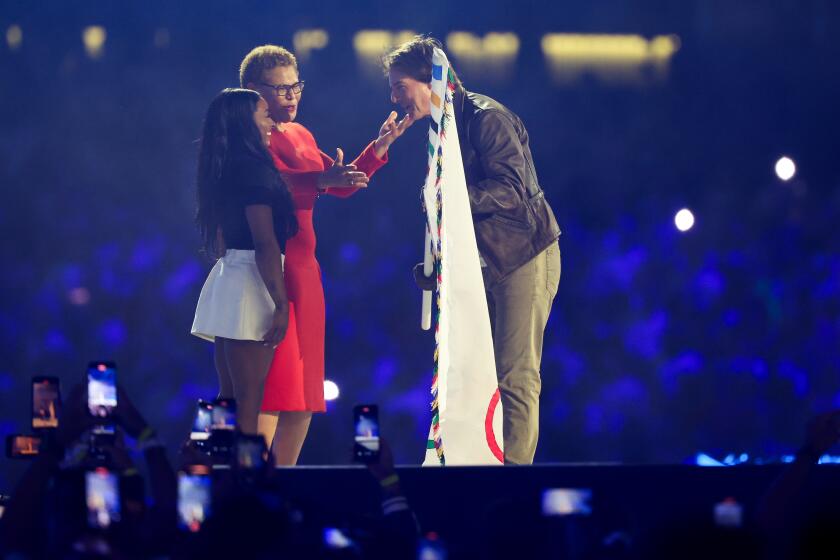A Guy to Talk to--and Maybe Be Silent With
I think I would have liked Danny Pearl.
I think I could have sat down with him in a quiet corner of the Red Dog and had a drink with him and talked about ... well ... nothing.
There haven’t been too many people in my life that I could talk nothing with, if you know what I mean. Not cosmic events, but small kinds of occurrences that blow into a room like puffs of smoke and then vanish out a window.
I think I could have laughed with Danny Pearl. From what I read and heard of him, he had a quirky sense of humor, an ability to understand fun when it was time for fun. He had the look of a guy who could kick back and open up.
And I think I could have sat in silence with Danny Pearl. That’s important, maybe even more important than being able to discuss nothing with a guy, being comfortable enough with each other that you can just sit there without talking and still be company.
My old pal Belcher was like that. We drank together, talked together and laughed like madmen together. For years we carpooled at 5 a.m. to the old Oakland Tribune, where we both worked, sometimes not saying a word for the 45 minutes it took to get there. We could ride in silence together.
I think Danny Pearl could have been like the Belch, one of the old-school kinds of reporters who understood the idiosyncrasies of life, even as he clung to its values.
Belcher died in 1987, alone with the cancer that ravaged him. Danny Pearl died weeks ago, alone with the killers who took his life for no good reason at all.
Now I miss them both, one a good friend, the other a man I didn’t even know.
I was thinking about Danny Pearl the other night as I watched the closing ceremonies of the winter Olympics: all those flags of different nations in one gigantic flow of color and all the athletes from everywhere mingling together and hugging each other. And I began wondering what Danny would have thought of it all.
I have to admit I felt a kind of rush, not from the pageantry but from the idea that nations aren’t just nations but are people too. And maybe the mingling of the individuals, the people, would cause them to wonder at some future date why people were always shooting at each other, always killing other people.
It would have been one of the more serious conversations I’d have had with Danny Pearl. I’d have told him how I felt, and probably he’d have laughed a little and chided my efforts to try to reshape the world.
But then he’d have understood the idea of close associations, and how difficult it would be to shoot someone you knew.
I think I could have had heavy conversations with Danny Pearl as well as light ones. Belcher and I were able to bring each other to the edge of tears over, well, big things, like love and humanity and the passage of time. I suspect, as I think back on it, that a lot of the emotion may have grown in direct proportion to the number of martinis we drank, but at least it was there to begin with.
If Danny Pearl and I had been sitting there watching the closing ceremonies of the Olympics and maybe having a drink or two, I’d have asked him if he thought all of that would be worth dying for.
All the pageantry and hoo-hah, all the music and the flags and the hugging and the words, and before that little Sarah Hughes, iridescent and beautiful in her youngness, soaring over the ice like a bird in flight.
“What about it, Danny?” I’d have said. “Would you give your life for their right to skate and hug and talk and sing and be a giggly teenage girl in that brief flash of triumph?”
We’d have talked about it long after the Olympic torch had been extinguished and the pageantry had turned to party and the news shows had gone on to something else.
I think the gist of Danny Pearl’s response would have been that it’s too bad you had to die for anything at all, especially a big carnival like the Olympics. But maybe what it was supposed to represent, a kind of union of the world, would be worth giving your life for, the idea that humanity is one and the world is small. The idea of tomorrow.
And then we’d have gotten into all the other kinds of things that were less gigantic and flamboyant than the Olympics that were also worth dying for. Like a walk in the park. Or coffee with a friend. Or being in love. Or seeing a movie. Or raising a child. Or demanding respect. Or sleeping in peace.
Or just being able to talk together, or laugh together or ride in silence together, or cry together.
I’d have liked Danny Pearl, because I’m sure that he valued the freedom of being able to do the small things we hardly ever think of. In a way, he died for them. He went down like a soldier, but one whose weapon was words and whose goal was not conquest but the information that leads to knowledge, and the knowledge that leads to truth.
No doubt about it. I’d have liked Danny Pearl.
*
Al Martinez’s column appears Mondays and Thursdays. He’s at [email protected]
More to Read
Go beyond the scoreboard
Get the latest on L.A.'s teams in the daily Sports Report newsletter.
You may occasionally receive promotional content from the Los Angeles Times.








